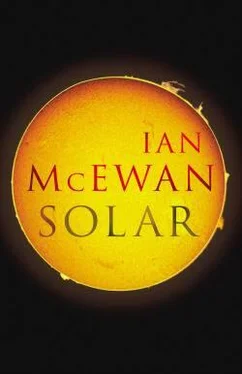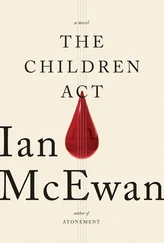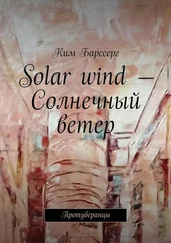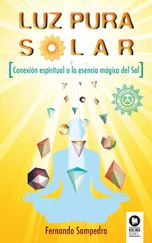He thought now he was going to be sick. His mind went blank and, fearful of a moment's pause, he spoke of the first thing that came to mind, and lurched into a personal anecdote. Blandly at first, like a man testing a microphone by itemising his breakfast, he summoned for his audience his journey that afternoon from the airport. Before long he was convinced that the story was not such a poor choice after all. He had yet to make real contact with his listeners, he had said nothing droll, and this was England, where people expected to be amused, however faintly, by speeches on public occasions. He was ahead of the nausea now as he described his purchase of newspapers at the airport shop. When he confessed to a weakness for a certain flavour of crisp there was a stirring of muted amusement in the rows of suited figures. Perhaps it was pity.
He was warming to his tale, convinced that it had a useful conclusion that he would discover in the telling. He set it out, the crowded train, the bottle of water on the table and, by it, the lurid packet opened by himself, and the unnerving stare of a large young man. There were appreciative titters as he described the way the adversaries devoured the snack. Beard did not embellish, but he intensified the moment at which he lunged in revenge at the water bottle and drained it in a few gulps and tossed it back on the table. He lingered on the way the man swung the suitcase down from the rack, and on his own furious refusal to engage with him. He spun them out, those seconds on the station platform before the discovery, which he divulged with a quickening of pulse, and a flush of eager pride when his audience chuckled, or even laughed out loud, as he, boldly miming now, held with outstretched arm the second packet before him, like Hamlet with Yorick's skull. Yes, they all seemed to like him a little more.
He hurried towards his conclusion, his excuse for telling this story. Were his points somewhat forced, or had he stumbled upon two important truths? No time to consider.
'What I discovered on Paddington station was, first, that in a grave situation, a crisis, we understand, sometimes too late, that it is not in other people, or in the system, or in the nature of things that the problem lies, but in ourselves, our own follies and unexamined assumptions. And second, there are moments when the acquisition of new information forces us to make a fundamental reinterpretation of our situation. Industrial civilisation is at just such a moment. We pass through a mirror, everything is transformed, the old paradigm makes way for the new.'
But the rhetorical flourish of these final phrases had a desperate air, his voice sounded thin in his ears, his conclusions were hollow after all. Where now? His body knew precisely. He released his grip on the lectern and turned to step somnambulantly through the gap in the curtain into a gloomy space broken by looming columns of what looked like stacked chairs. To the sound of respectable applause, he bent double while his burden, well lubricated by fish oil, slid soundlessly from him. He remained in that position for a few seconds, waiting for more. There was nothing. Then he went out onto the dais to stand, solemnly dabbing at his lips with a handkerchief, while Saleel gave a vote of thanks.
The pension-fund managers and the rest drifted back to the large reception area where waiters were serving wine. Beard was obliged by the terms of his fee to mingle with his audience for at least half an hour. He stood with a glass of cleansing Chablis as faces above neckties rotated before him. People were well meaning and polite as they told him that his talk was 'interesting', even 'fascinating', but it was obvious that no one's investment strategy was transformed. He learned that earlier in the day an oil analyst had persuaded the room that, with tar sands and deep-sea drilling counted in, there were five decades of known reserves.
A young man of ghastly pallor and brown toothbrush moustache said, 'On top of which, these islands are practically made of coal. If virtue isn't a consideration, why would we risk our customers' money on unproven, non-continuous forms of energy supply?'
And a woman standing next to him, speaking on Beard's behalf, said, 'The Stone Age didn't end because of a shortage of stones.'
He had heard oil sheikh Yamani's feeble line too many times to want to laugh with the rest.
Someone else said, 'There simply isn't enough sun and wind in the UK to drive the economy.'
And another person behind him, invisible to Beard, said, 'So we buy in solar energy from North Africa. Where's your energy security in that?'
He was dealing with these points and accepting a second glass of wine, even though he knew it was time for a scotch, when suddenly the lecturer, Mellon, was there, waiting eagerly with trembling beard for a break in the conversation.
When it came he said, 'I'd love to know where you got that story from.'
'What story?'
'You know. The one about the man on the train.'
'As I said. It happened to me this afternoon.'
'Come now, Professor Beard. We're all grown-ups here.'
The fund managers, sensing that one man was calling another to account, pressed in to hear above the din of voices.
Beard said, 'I've lost you. You'll have to explain.'
'You told it very well, and I can see it suited your purposes.'
'You think I made it up?'
'On the contrary. It's a well-known tale with many variants, much studied in my field. It even has a name – the Unwitting Thief.'
'Really,' Beard said coldly. 'How interesting.'
'Actually, it is. Across the variants are some stable characteristics. For example, the wrongly accused is generally a marginal figure, often threatening – a tinker, an immigrant, a punk, even someone with a disability. Your well-built young man with the earrings fits perfectly. The wrongly accused usually performs an act of kindness for the unwitting thief, and this makes the moment of truth all the more agonising. In your case, he lifts down your luggage. One theory is that the tale of the Unwitting Thief – it's known in the field as UT – expresses anxiety and guilt about our hostility towards minorities. Perhaps it acts in the culture as an unconscious corrective.'
'It must have occurred to you,' Beard said, determined to smile, 'that now and then it actually happens, that people's stories are real. You know, in an age of mass transport, people squashed up together carrying food in identical wrappers.'
'What interests us is the way the tale passes in and out of fashion, goes from lip to lip, falls from view, reappears a few years later in a different form by a process we call communal re-creation. UT was widely known in the States in the early nineteen hundreds. We don't have records of it here until the fifties, and by the early seventies it was everywhere. The writer Douglas Adams put a version of it in a novel in the mid eighties. He always insisted it had actually happened to him on a train – and that's another common feature. By claiming it as personal experience, people localise and authenticate the story – it happened to them, it happened to a friend of theirs – and insulate it from the archetype. They make it original, they claim copyright. UT has appeared in stories by Jeffrey Archer and, I think, by Roald Dahl, it's been told as a true story on the BBC and in the Guardian. It's the plot of at least two films – The Lunch Date and Boeuf Bourgignon, and it's also…'
'I'm sorry to disappoint you,' Beard said, 'but my experience belongs to me, not the collective bloody unconscious.'
The folklorist had a certain autistic doggedness. 'Yes, what's new about your version is the crisps. I've heard biscuits, apples, cigarettes, whole canteen lunches, never crisps. I might write it up for the Contemporary Legend Quarterly, if you don't mind. I'll change your name, of course.'
Читать дальше












